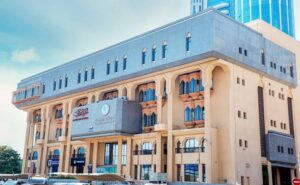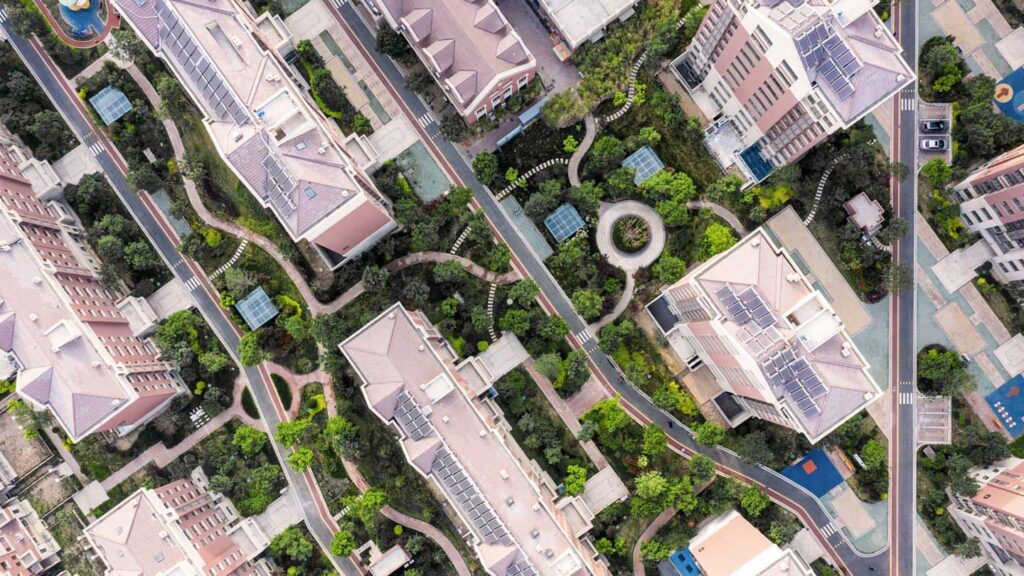It is imperative that the seller and buyer complete the leasehold property registration process with the Dubai Land Department (DLD). In Dubai, leasehold property registration is overseen by the Dubai Land Department (DLD). The DLD works to streamline land registration processes and accomplish the goals of the Dubai Government’s real estate plan.
The leasehold property registration fee is 2% of the total amount for both the seller and purchaser. If the sale value is equal to or more than AED 500,000, fees of AED 4,000 will be charged plus VAT for service partner fees. However, if the sale price of a property is less than AED 500,000, fees of AED 2,000 plus VAT for the service will be charged. Other fees to keep in mind include AED 250 for Title Deed Issuance, AED 100 for a land plot map, AED 225 for a unified land plot map with Dubai Municipality, and AED 10 for Knowledge Fees for each drawing.
To register a leasehold property in Dubai, the seller and purchaser must sign up and create an account on the Ejari system/Dubai REST App or login to the system or application and select the service. They must then fill in the details, attach the documents needed, pay the fees, and send the application online. It is crucial to follow the process to avoid any legal issues in the future.

Understanding Leasehold Ownership in Dubai
In Dubai, United Arab Emirates, property can be owned via a lease. It is not the same as freehold ownership, which grants the owner total control over both the building and the surrounding land. When a property is owned under a lease, the owner has the exclusive right to use it for a set period of time, typically between 30 and 99 years.
Leasehold vs Freehold Ownership
Freehold ownership is the most common type in Dubai’s real estate market. It gives the owner complete ownership of the property and its land, with no time limit. On the other hand, leasehold ownership grants the owner the right to use the property for a predetermined term, usually between 30 and 99 years.
Types of Property Ownership
Freehold and leasehold are the two forms of property ownership available in Dubai. Foreign nationals and citizens of the UAE are eligible for freehold ownership in specific locations. Outside of the approved freehold zones, foreign nationals can own property through leasehold.
Legal Framework Governing Leasehold
Leasehold ownership is governed by the Dubai Land Department (DLD), and the legal framework is set out in the Dubai Property Law. The DLD is responsible for registering leasehold property ownership and assuring that all parties in the transfer of ownership comply with the law.
In conclusion, understanding leasehold ownership in Dubai is essential for anyone investing in the Dubai real estate market. It is important to understand the difference between leasehold and freehold ownership, the types of property ownership available, and the legal framework governing leasehold ownership.
The Role of the Dubai Land Department
Dubai Land Department (DLD) is the central regulatory body that oversees all property affairs in Dubai. It plays a crucial role in leasehold property registration, ensuring compliance with DLD regulations. This section will discuss DLD’s responsibilities, the Real Estate Regulatory Agency, and actual property registration.
DLD’s Responsibilities
The DLD regulates and oversees all real estate activities in Dubai. It administers and maintains the property register, which contains all the necessary information about a property, including ownership details, mortgages, and other legal encumbrances. The DLD also ensures that all real estate transactions comply with the law.
Real Estate Regulatory Agency
One of the DLD’s regulatory branches is the Real Estate Regulatory Agency (RERA). It is in charge of upholding the laws and guidelines that control Dubai’s real estate market. RERA is essential to ensuring that all developers and real estate brokers follow the law and uphold the highest moral standards.
Real Property Registration
Accurate property registration is a crucial step in establishing the legal status of a lease agreement. The DLD oversees the registration process, which involves several steps, including the payment of fees and the submission of documents. The DLD also ensures that all accurate property registrations are conducted in compliance with the law.
In conclusion, the Dubai Land Department plays a significant role in Dubai’s leasehold property registration process. Its responsibilities include regulating and overseeing all real estate activities, ensuring compliance with the law, and maintaining the property register. The Real Estate Regulatory Agency enforces the real estate sector’s rules and regulations. Accurate property registration is a crucial step in establishing the legal status of a lease agreement.

Registration Process for Leasehold Properties
Leasehold properties in Dubai are registered with the Dubai Land Department (DLD) and require a specific process to be followed. This process involves initial documentation, Ejari registration, and title deed issuance.
Initial Steps and Documentation
The first step in registering a leasehold property with the DLD is to prepare the necessary documentation. This includes the original sales contract, a copy of the seller’s passport, and the buyer’s passport and Emirates ID. The buyer must also obtain a no-objection certificate (NOC) from the developer or master developer, confirming that all property fees have been paid.
Once the documentation is complete, the buyer must visit one of the DLD’s Real Estate Registration Trustee Centres to submit the application and pay the registration fees.
Ejari Registration
After the initial registration process, the buyer must register the lease agreement with the Ejari register. The Ejari registration process involves creating an account on the official Ejari online portal hosted by the Dubai Real Estate Regulatory Agency (RERA).
The registration fees for leasehold properties are 4% of the entire rent amount, including any premium payable, and must be paid at the time of registration.
Title Deed Issuance
Once the Ejari registration is complete, the DLD will issue a title deed. This document is proof of ownership and is necessary for future property transactions. The title deed will include the property’s location, size, and ownership details.
It is important to note that the registration fees for leasehold properties are 2% of the total amount for the seller and purchaser. However, if the property’s sale price is less than AED 500,000, the fees are AED 2,000 plus VAT for the service partner’s fees.
In conclusion, registering a leasehold property in Dubai requires following a specific process, including initial documentation, Ejari registration, and title deed issuance.
Financial Considerations
Registration Fees and Payments
Some fees and payments must be considered regarding leasehold property registration with the Dubai Land Department (DLD). The fees for registration of leasehold property vary depending on the property’s value. For instance, if the sale value is equal to or more than AED 500,000, fees of AED 4,000 will be charged plus VAT for service partners fees. However, if the sale price of a property is less than AED 500,000, fees of AED 2,000 plus VAT for the service partners fees will be charged. It is important to note that these fees are subject to change, so it is always advisable to check with the DLD for the latest information.
Understanding Mortgage and Usufruct Rights
Leasehold property registration also involves understanding mortgage and usufruct rights. When a leasehold property is mortgaged, the mortgagee has the right to possess and use the property as security for the loan. On the other hand, when a leasehold property is subject to usufruct rights, the usufructuary has the right to use and enjoy the property for a specified period. The usufructuary can also sell or transfer their rights to another person.
Premium and Ownership of Real Property
It is important to note that leasehold property registration with the DLD also involves paying a premium to the freehold owner. The premium is a one-time payment to the freehold owner for the right to use the property for a specified period. Additionally, leasehold property owners do not have ownership of the real property but rather the right to use it for a specified period. This means the freehold owner retains ownership of the property and can sell it to another person.

Rights and Obligations
Landlord and Tenant Rights
In Dubai, landlords and tenants have certain rights and obligations outlined in the tenancy agreement. The landlord has the right to receive rental income from the tenant and can charge rent following the prevailing market rates and the tenancy agreement terms. Additionally, landlords have the right to increase the rent after the end of the tenancy period, provided they give the tenant 90 days notice in writing.
On the other hand, tenants have the right to a safe and habitable living space, and the landlord must provide necessary repairs and maintenance. Tenants also have the right to privacy, and the landlord cannot enter the rental property with no pre-notice and the tenant’s permission.
Investors’ and Buyers’ Protections
Several regulations govern property transactions in Dubai, protecting foreign investors and buyers. The Dubai Land Department (DLD) and the Real Estate Regulatory Agency (RERA) oversee property registration and licensing of real estate agents. These authorities also ensure that buyers are protected from fraudulent activities and that all transactions are conducted fairly and transparently.
When purchasing leasehold property in Dubai, buyers have the contractual right to the property for the duration of the lease agreement. The ownership interest of the property remains with the landlord. According to Law No. 7 of 2006, buyers also have the right to a long lease in a designated region for a maximum of 99 years.
Overall, the rights and obligations of landlords, tenants, and buyers in Dubai are clearly defined by the law, and the authorities ensure that these regulations are followed to protect the interests of all parties involved.
Navigating the Real Estate Market
Dubai’s real estate market offers both individuals and corporations the chance to make large profits from their investments. But it’s crucial to comprehend the legal nuances of property transactions, especially when it comes to registering leasehold properties with the Dubai Land Department (DLD).
Investment Opportunities and Strategies
Investment opportunities abound in the Dubai real estate market, ranging from off-plan constructions to residential and commercial buildings. Investors must to think carefully about their objectives, demand, market trends, and investing strategy.
One strategy is to focus on areas experiencing growth and development, such as Dubai South and Dubai Creek Harbour. Another is to invest in properties offering high rental yields, such as those in the popular areas of Dubai Marina and Downtown Dubai.
Market Trends and Transparency
The Dubai property market is known for its transparency and regulation, with the DLD playing a crucial role in ensuring security for all parties involved. Investors should stay up-to-date with the latest market trends and regulations, such as the recent changes to the DLD’s leasehold property registration process.
Transparency is also essential in property transactions, and investors should ensure that all necessary documentation and contracts are in order before proceeding with any transaction. Special Considerations for Foreign Investors
Foreign investors looking to register a leasehold property with the Dubai Land Department (DLD) should note several vital considerations. These considerations include designated areas for foreign ownership, due diligence, and legal support.
Designated Areas for Foreign Ownership
Dubai lets foreign investors own property in designated areas through freehold ownership. Specific laws, such as Dubai law No. 7 of 2006, outline the areas where non-UAE nationals can acquire property and register a leasehold. Foreign investors should ensure that the property they are interested in is located in one designated area before proceeding with any transactions.
Due Diligence and Legal Support
Prior to registering a leasehold with the DLD, foreign investors should perform extensive due research on the property they plan to purchase. This includes verifying the property’s ownership, ensuring that all necessary permits and approvals are in place, and confirming that the property is free from legal disputes or encumbrances.
Foreign investors should also seek legal support from a reputable law company experienced in real estate transactions in Dubai. This will help ensure all legal requirements are met, and the leasehold registration process proceeds smoothly.
In addition to these considerations, foreign investors should know the regulatory framework governing leasehold property registration in Dubai and the residency visa requirements for property owners. By considering these factors, foreign investors can make informed decisions and confidently navigate the leasehold registration process.

Regulatory and Legal Updates
Dubai Law No. 7 of 2006
Dubai Law No. 7 of 2006, also known as the Land Registration Law, governs the registration of leasehold properties in Dubai. The law defines a leasehold property as one leased for a specific period, and the leaseholder is entitled to use the property during the lease period. The law also outlines the rights and obligations of the lessor and the lessee.
Dubai Law No. 33 of 2008
Dubai Law No. 33 of 2008, also known as the Dubai International Financial Centre (DIFC) Law, regulates the registration of leasehold properties in the DIFC. The law defines a leasehold property as one leased for a specific period, and the leaseholder is entitled to use the property during the lease period. The law also outlines the rights and obligations of the lessor and the lessee.
Administrative Resolution No. 134 of 2013
Administrative Resolution No. 134 of 2013, issued by the Dubai Land Department (DLD), regulates the registration of leases in Dubai. The resolution requires that any lease for more than ten years and up to 99 years be deemed a long-term lease and registrable per Dubai Law No. 7 of 2006.
The resolution also outlines the registration fees for leasehold properties. For the seller and purchaser, the leasehold property registration fee is 2% of the total amount. For instance, if the sale value is equal to or more than AED 500,000, costs of AED 4,000 will be charged plus VAT for service partners fees. However, if the sale price of a property is less than AED 500,000, fees of AED 2,000 plus VAT for the service will be charged.
Regulatory Framework
The regulatory framework for leasehold property registration in Dubai is well-established and provides clear guidelines for lessors and lessees. The laws and regulations are regularly updated to ensure compliance across all real estate listings on portals.
Grey Area
The registration of leasehold properties in Dubai is grey, particularly regarding long-term leases. The DLD has issued Administrative Resolution No. 134 of 2013 to resolve this issue, but there may still be some ambiguity in the interpretation of the law.
In conclusion, the regulatory and legal framework for leasehold property registration in Dubai is well-established and provides clear guidelines for lessors and lessees. The laws and regulations are regularly updated to ensure compliance across all real estate listings on portals. However, there may still be some ambiguity in the interpretation of the law, particularly regarding the registration of long-term leases.
Additional Services and Support
Rental Dispute Settlement Centre
In case of any rental disputes, tenants and landlords can approach the Rental Dispute Settlement Centre (RDSC) for resolution. The RDSC is a specialized judicial body established by the Dubai Land Department to settle disputes between tenants and landlords. It offers various services, including mediation, arbitration, and litigation, to help resolve rental disputes.
Service Channels and Processing Time
The Dubai Land Department (DLD) offers various service channels to help with leasehold property registration. These channels include online portals, service centers, and authorized service partners. The processing time for leasehold property registration depends on the type of service and the service channel used. For instance, if the service is available through the Ejari system, the processing time is usually within 24 hours. However, the processing time may take longer if the service is availed through a service center or an authorized service partner.
The Ejari system is recommended to ensure a smooth and hassle-free leasehold property registration process. It is an online platform that allows tenants and landlords to register their lease agreements and renewals electronically. The Ejari system is fast, efficient, and secure, and it helps reduce processing time and paperwork.
In addition to the Ejari system, tenants and landlords can also avail of other services the DLD offers, such as title deed issuance, land plot maps, and unified land plot maps. The fees for these services deviate according to the service type and the property’s value. Check the DLD’s website or contact their call center for more information on fees and service channels.
Dubai MLS
Dubai MLS, founded by the bright mind of Ahmed Elbatrawy, is a groundbreaking platform set to revolutionize the industry by offering a comprehensive Multiple Listing Service explicitly tailored for Dubai. With its innovative approach, Dubai MLS promises to streamline property transactions and unlock unprecedented opportunities in the dynamic Dubai market.

Asked Questions
What are the steps for registering a leasehold property with the Dubai Land Department?
To register a leasehold property with the Dubai Land Department (DLD), the following steps need to be taken:
- Obtain a no-objection certificate (NOC) from the developer or master developer.
- Get the tenancy contract attested by the Ejari department.
- Submit the tenancy contract, NOC, and other required documents to the DLD.
- Pay the registration fee and obtain the title deed.
What documents are required for Ejari registration in Dubai?
The following documents are required for Ejari registration in Dubai:
- A copy of the tenancy contract.
- A copy of the landlord’s passport and Emirates ID.
- A copy of the tenant’s passport and Emirates ID.
- A copy of the property’s title deed.
- A copy of the DEWA (Dubai Electricity and Water Authority) bill.
Who is responsible for paying the Ejari registration fee?
According to Dubai Rental Law, the landlord is responsible for the Ejari registration fee. However, the cost is often split between the landlord and the tenant.
Can a leasehold property in Dubai be converted to a freehold, and what is the process?
Yes, a leasehold property in Dubai can be converted to freehold ownership. The process involves buying out the remaining lease term from the landlord and paying the conversion fee to the DLD. The conversion fee is usually a percentage of the property’s market value.
What is the cost of registering a leasehold property with the Dubai Land Department?
The cost of registering a leasehold property with the DLD depends on its value. The registration fee is 2% of the total property value for properties worth AED 500,000 or more and 4% for properties worth less than AED 500,000.
What happens to leasehold property in Dubai when the 99-year lease term expires?
When the 99-year lease term expires, the property reverts to the landlord or the government, depending on the terms of the lease agreement. However, in practice, leasehold properties in Dubai are often renewed or extended before the lease term expires.












